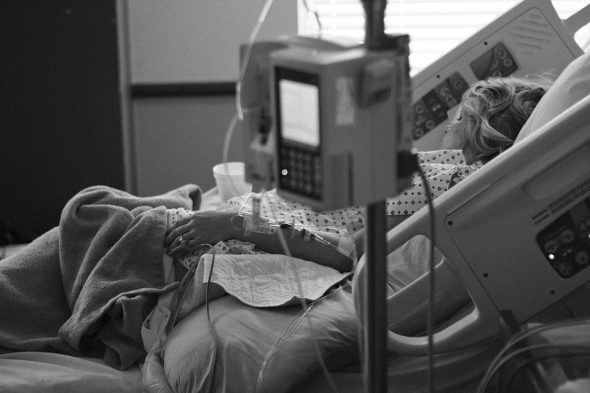How to help a loved one after a surgery

Undergoing even a minor surgical procedure can take its toll and present unexpected challenges. Having a loved one on hand to provide emotional and practical support can make a huge difference in the recovery process.
Ideally, you should accompany the patient to the hospital and be available as they’re waking up. Coming out of surgery can be disorienting, and some people don’t respond well to anesthetic, so your presence can help to make your loved one feel safe and regain their equilibrium more quickly.
In the immediate period following surgery, the patient may be kept at the hospital for a few hours or several days to be observed and receive professional care. Your presence during this time, even if you’re just popping in for visits, can help to distract and encourage the patient. While there will be medical staff on hand, you can also provide practical support by helping the patient with small tasks to keep them from straining their stitches or experiencing undue pain and frustration.
Depending on your loved one’s personality, they may appreciate your presence throughout their time in the hospital, or they may prefer shorter visits. They will likely feel tired and may have trouble concentrating on others, so if they’re likely to feel a need to “entertain their guests”, it can be wise to visit for short periods and excuse yourself when the patient’s energy or focus seems to be flagging. On the other hand, some patients experience post-surgery depression and could use the affirmation and distraction from pain or dark thoughts that you could provide.
Another way that you can help is by providing transportation assistance. Most types of surgery recommend that the patient be escorted home, rather than making their way on their own, even if their surgery shouldn’t have significantly impacted their mobility. But in some cases, the patients might need to take a stroller or a wheelchair to temporarily assist them in moving about. In which case, renting one from places like Bosshard Medical would be ideal. This is suggested because of the possible side effects, including exhaustion, disorientation, and distraction, pain, nausea, reactions to medication, or very low blood pressure, which might occur after surgeries. Painkillers also impair judgment and response times. The patient shouldn’t operate a motor vehicle for the safety of others as well as themselves. Offering a ride to and from the hospital is an excellent way to support your loved one.
Once home, the type of support that a patient might need changes. It’s good to have someone else in the home to monitor the patient’s condition, even in surgeries where side effects are expected to be minimal. You don’t necessarily have to be interacting with the patient continuously as they’ll need their rest, but staying nearby for several hours to a few days with the understanding that the patient bears no responsibility to interact or entertain can be helpful. There’s a degree of emotional support in this; you’re helping them feel loved and cared for during a difficult time. Depending on the type of surgery, you will probably be able to help in practical ways, such as fetching and carrying items that the patient needs, helping them move, or even helping them get cleaned up in some cases.
Even if a loved one has someone else at home for primary support, there are ways that you can help. Offer to come for shorter visits to give the primary caregiver a break. Help with practical needs such as meals, pet or childcare, cleaning, or other chores. Bring (or send) over fun items to fill the time or as a treat. Always be sensitive to your loved one’s personality and preferences, and the type of surgery. If they’re likely to be bedridden for long periods or to experience post-surgical pain, they might appreciate the distraction and entertainment of a visit.
You can prepare to help by looking for ways to make the experience easier on your loved one. Are there changes that you could make to their space to make it more functional during the recovery period? Is there anything that you can do to help them manage the pain and heal faster, besides their prescriptions?
Holistic approaches such as aromatherapy or pressure-point massage can be soothing and are thought to promote healing. Beyond that, there’s a great deal of innovation going on in post-surgery recovery and medication options, and it might be a good idea to do some research on how you could make your loved one more comfortable. Dr. Erol Onel runs a company that develops post-surgery medications. Bringing or preparing healthy foods and supplements can also be helpful during post-surgery recovery. Doing the research and finding solutions for your loved one reduces the number of things they have to worry about and take care of during a challenging time.
Your loved one needs your help following surgery, whether or not they recognize that. Be sensitive to their needs and preferences but also assertive in looking for ways to help, especially if the patient is normally very self-sufficient. Post-surgery recovery often surprises patients with how much it demands out of them, and being on hand to offer emotional and practical support is an excellent way to show your loved ones that you care.
- Restaurant Germs: Improving Cleaning Practices For Commonly Contaminated Surfaces - April 15, 2024
- 11 Cancer-Fighting Foods to Reduce the Risk of Cancer - March 18, 2024
- Safety and Aesthetics: Tips for Landscaping Around Your Wellhead - February 20, 2024
